This Common Credit Card Mistake Could Be Costing You Money — Plus 9 Others That Could Hurt Your Credit Score

Credit cards can be a valuable financial tool when used responsibly and intelligently. They can help you build your credit score, which leads to lower interest rates and access to more credit. But too many consumers have misconceptions about what might push their credit score higher. One of those misconceptions is that carrying a credit card balance will help your score.
See Our List: 100 Most Influential Money Experts
Explore: GOBankingRates' Best Credit Cards for 2023
That's not the case -- but a lot of consumers seem to believe it. A recent LendingTree survey of more than 1,000 American adults found that roughly two-thirds (65%) of respondents think carrying a small balance on their credit card each month will improve their credit score. The percentage is even higher (79%) among Gen Z consumers.
In truth, carrying a balance on your credit card won't help your score -- but it might lead to extra and unnecessary interest payments.
"The myth hurts cardholders because it costs them money," Matt Schulz, chief credit analyst at LendingTree, said in a press release. "If they're only carrying a small balance, it may not cost them a huge amount of money, but over time, it adds up."
The myth might have roots in the belief that you need to carry a small balance to prevent your card account from being closed. That's not necessarily the case. As Schulz said, you only need to use the card periodically.
Here's a look at 10 other credit card mistakes, and how to prevent them.
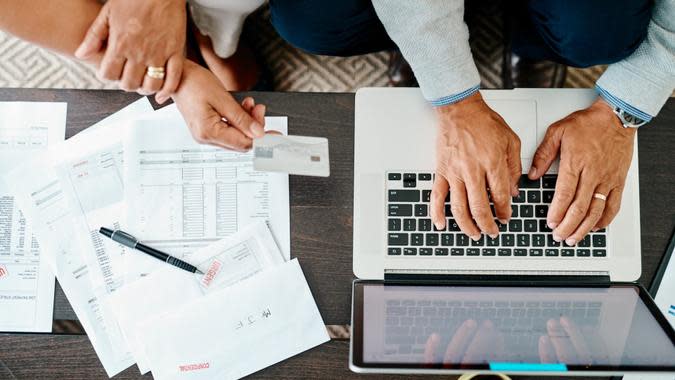
Only Paying the Minimum Balance Every Month
"Only paying the minimum balance on your credit cards every month is like running on a debt treadmill," said Chris Cohen, chief innovation officer at financial services company Kasasa. "On average, only 2-4% of your minimum payment goes to the principal -- the rest is paying off interest."
Interest continues to accrue on your balance as time goes on, making your debt continue to grow.
"This leaves you with credit card debt for longer, especially as you add more purchases on the card," Cohen said. "You end up paying considerably more money due to interest on top of the initial purchase. Hence the debt treadmill -- you keep running (paying) but you never get anywhere (principal remains)."
Take Our Poll: Are You Struggling To Keep Up With Your Utility Bills?

What To Do Instead
"Instead of paying the minimum balance, the best-case scenario for paying off credit cards is to pay off your balance in full every month," Cohen said. "This way, interest rarely accrues, and you rarely pay more than the costs of the charges made to the card."
If this is not an option, Cohen said to pay a fixed amount every month that is more than the minimum payment required -- optimally, the minimum payment plus the interest.
"This way, you put more money toward the principal of your debt, which ultimately leads to paying cards off faster and spending less money on interest," he said.
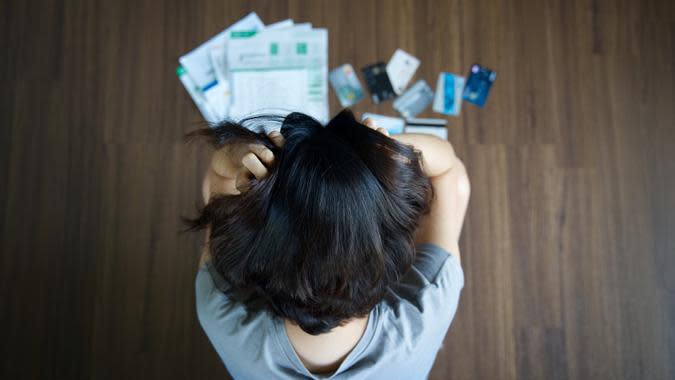
Missing a Payment
"Late or missed payments can seriously hurt your credit score," said Justin Zeidman, assistant vice president of open banking at Navy Federal Credit Union.

What To Do Instead
Although paying off your balance in full every month is ideal, it's better to pay part of your balance by the payment deadline than to pay nothing at all.
"If you're not able to pay down your balance in full, I recommend at least making your minimum payment each month," Zeidman said. "You can also set up automatic payments along with text alerts on your mobile device to ensure payments are made on time."

Not Creating a Payoff Plan After a Balance Transfer
Balance transfer cards can be useful for consolidating debts and lowering your interest owed. But these cards typically only offer a 0% APR for an introductory period, so not figuring out how to pay off your debt before then -- or deal with the higher interest rate after that period -- can end up really costing you.

What To Do Instead
"Before you pick a balance transfer card, make sure you have a payoff strategy in place," Zeidman said. "This will tell you how long it might take to pay down the debt, giving you a better understanding of how long you need that promotional APR to last. Also, make sure to read the fine print and understand all that goes into a balance transfer. Some cards have balance transfer fees that may end up canceling out the savings you would have from consolidating your debt on one low-interest-rate card."
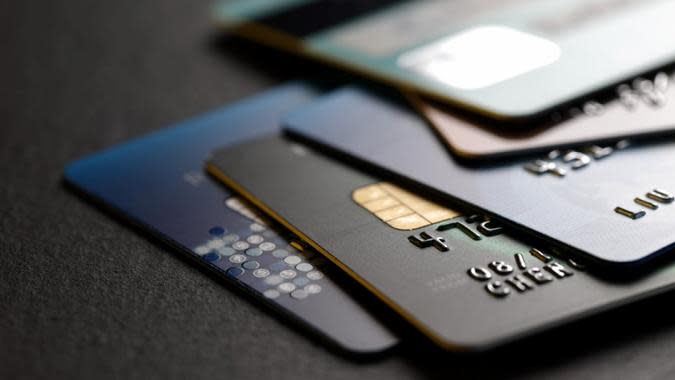
Forgetting About Extra Card Benefits
"While most everyone is aware of the rewards -- whether it be points or cash back -- tied to their card, it's important to remember other perks or benefits," Zeidman said. "Many credit card issuers offer free price-matching services or extras like extended warranties, purchase protections, free subscriptions, purchase or rental insurance, and much more!"

What To Do Instead
Next time you log in to your account, do some research into all of the perks and benefits that come along with your card to ensure you're taking advantage of any money-saving offers you may have been missing out on.
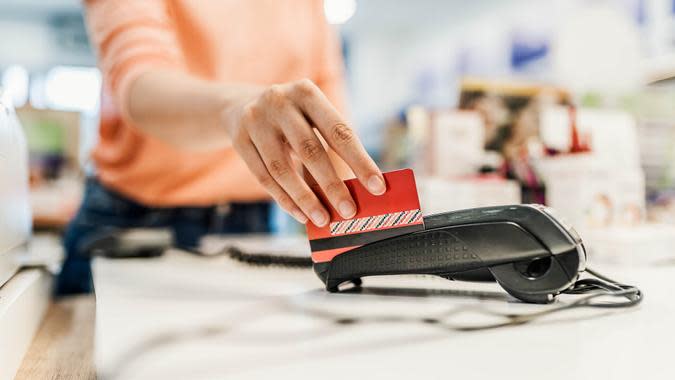
Having Just One Card
"Having just one credit card is not always ideal because you may not be getting the most bang for your buck with every purchase," Zeidman said.
That's because different cards offer different types of rewards for different spending categories, so you may be missing out on extra cash back or points by using the same card for all purchases.
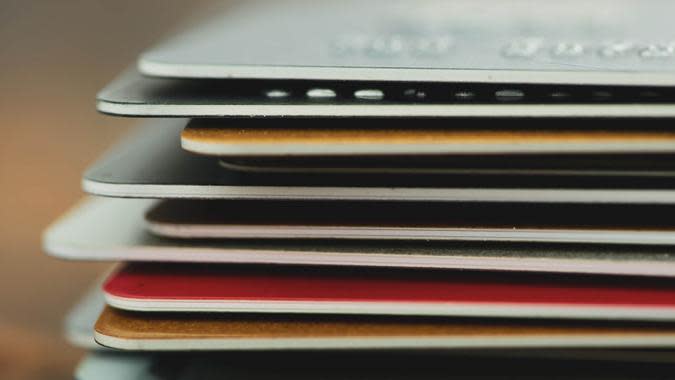
What To Do Instead
"Having multiple cards in your wallet and using those cards on the types of purchases that earn you the most rewards can be a great way to maximize the value you get from your credit cards," Zeidman said. "Responsible credit usage is paramount, but if you are in a financial place where you can manage more than one card, it can be very beneficial to have multiple cards in your wallet."

Applying for Credit Cards Too Often
"While it can be beneficial to have multiple cards if you are in the financial place to do so, applying for credit cards too often can be damaging," Zeidman said. "When your credit shopping goes on for too long or becomes too frequent, it reflects poorly on your creditworthiness because it signals you may not be qualifying for a new credit card. This can negatively impact your credit score."

What To Do Instead
How long you should wait between credit card applications depends on your current credit score and goals. Daniel Gillaspia, an attorney and founder of UponArriving.com, told U.S. News that you should space applications for new credit cards at least 90 days apart. However, you should wait longer if you are looking to improve your credit score.
"If you're focused on building your credit score, you might open up a new card every six to 12 months," Gillaspia told U.S. News.

Maxing Out Credit Cards
"Maxing out your credit card and carrying a very high balance can negatively affect your credit score," Zeidman said. "Those cards can become difficult to manage and pay off. And as interest accumulates on the balance, so does your debt burden."
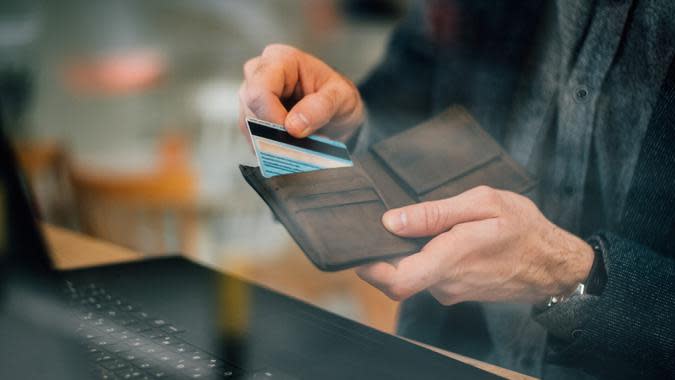
What To Do Instead
Instead of maxing out a single card, spread purchases among multiple cards to keep your credit utilization rate low. Alternatively, you can ask your credit card provider to raise your credit limit if your account is in good standing.

Using Credit Cards To Make Purchases You Can't Afford
Many people use credit cards to make purchases that may be out of their budget with the mindset that they will pay off these purchases "eventually." But the longer you put off paying your balance, the heftier your balance will become.
"If you're using [a credit card] to purchase things you can't readily afford, often due to social pressures and a desire to keep up with the Joneses, you may quickly put your financial health in serious jeopardy," said John Hagensen, founder and managing director of Keystone Wealth Partners. "Many people get a balance and struggle to make the minimum payment each month. At that point, it's not only difficult to pay off the balance and eliminate that massive interest rate, but building an emergency fund and saving for retirement become an afterthought."

What To Do Instead
Only charge to your card what you can actually afford to pay back at the end of the month. This allows you to earn cash back and rewards without any fear of going into debt.

Using Credit Cards To Pay for Daily Living Expenses
If you're using credit cards to pay off all your monthly bills, this could be a mistake. If you're not paying attention to what you are spending and just put everything on autopay, you could be living above your means and not even realize it.
"Available credit on a card can provide a false sense of disposable income and conflict with budgeting for daily living expenses," Cohen said.
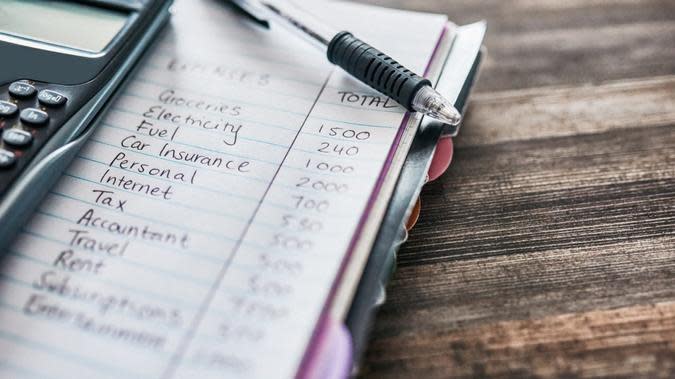
What To Do Instead
"It's ideal to budget your living expenses based on your monthly income and include savings within this budget for optional expenses and emergencies," Cohen said. "Of course, this is not always possible. Look for other payment options rather than using a credit card. For instance, if you have an unexpected medical bill, set up a payment plan directly with your provider to make minimal payments that you can afford. Typically, medical debt does not have interest attached and you can set up flexible payment plans, and medical bills do not affect your credit score. Also, check if your community financial institution offers a loan that helps you get control of your financial future."
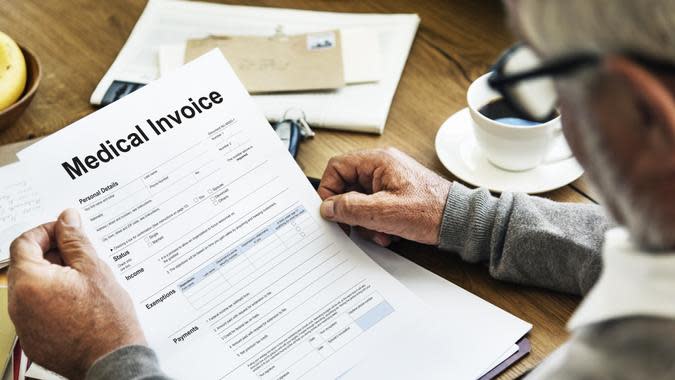
Using Credit Cards as an Emergency Fund
When an unexpected expense pops up, your instinct may be to charge it to your credit card. However, this is not always the best option given that credit cards tend to have high interest rates.
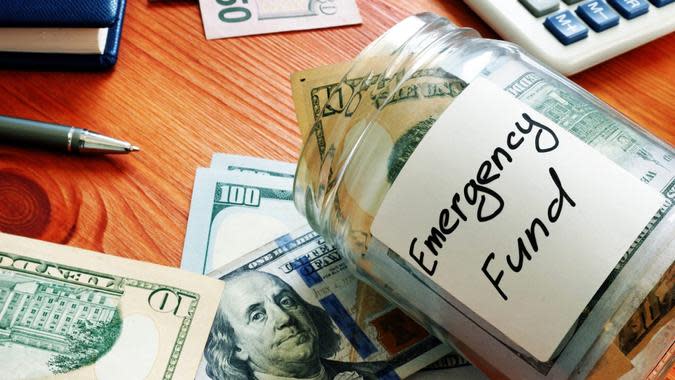
What To Do Instead
"A savings account is preferable to credit cards for an emergency fund," Cohen said. "Likewise, a loan with the ability to take back extra payments when needed for an emergency can help."
Look for loan options with low interest rates before automatically choosing to put emergency expenses on a credit card.
More From GOBankingRates
This article originally appeared on GOBankingRates.com: This Common Credit Card Mistake Could Be Costing You Money — Plus 9 Others That Could Hurt Your Credit Score
